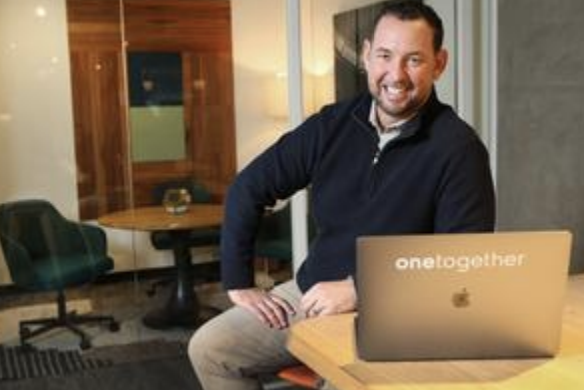What's the future of the office? Here's what a Seattle furniture dealer says.

Seattle-based office furniture dealer OpenSquare has been in operation, in few different incarnations, since the height of the Great Depression. Its clients include some of the biggest companies in the Puget Sound region.
However, nothing could have prepared the company for the pandemic-related downturn of 2020, when workers stayed home, offices shuttered and OpenSquare's sales plummeted 75% year over year.
Then, a spike in demand for home office furniture breathed new life into the 88-year-old company. OpenSquare generated a record $190 million in sales in 2021, according to Puget Sound Business Journal research. The company said it will register similar sales volume in 2022.
Trevor Croghan, general manager at OpenSquare, expects growth to moderate in 2023 because "for the most part, people are (now) pretty well-equipped in their homes."
What excites him more are the possibilities introduced by this new era of work.
The conception of the office has changed drastically in the last couple of years. Businesses like OpenSquare are at the center of the change. And, together with its large corporate customer base, the company could model new ideas and meanings of the workplace.
The Business Journal sat down with Croghan recently on an ergonomically correct sofa at OpenSquare's headquarters in Seattle Design Center. Croghan shared the challenges and opportunities faced by his company and office spaces in general.
How is this moment unique for your industry? The topic of the future of the workplace is of strategic importance to almost every organization. Almost every senior executive right now is thinking about, asking themselves the question, "What should our strategy around our physical location be? Is the workplace important? And if it is, how does it need to be designed? How much do we need?"
For the first time in my career, workplace and workplace strategy is on that shortlist of strategic importance for almost every senior leader.
Space is an expensive investment. How are companies handling the uncertainty about in-person work? I think everybody is smart to look at that right now. If you're only going to be in the office for a few days a week, how much space do you really need?
You can take some of your space and design it very intentionally and strategically and then take some of that other floor plate and put it on the sublease market, or reduce footprint. Some organizations are doing that. Others are doing the opposite. They're seeing this as an opportunity to expand because they believe more than ever that coming together is important, and they're using that as a strategic advantage in their business.
You're going to see a range of experiments around the workplace. Over the next few years, we'll see that play out.
Is there a particular product or service that businesses are asking for more of? Working in a hybrid environment ... is something that is very, very challenging. It's much harder designing and engagement for (hybrid work). It requires a lot of intentional design and a whole suite of products, from furniture to technology to the architecture in the space. Those types of products and environments that support hybrid work are at the top of the demand list.
What are you seeing happen in the office market? There are much more strategic projects than just building new space to accommodate more people. Space is being built to attract people back to the office, to engage them while they're in the office and inspire them while they're there.
Has that changed the way you conduct business? What our customers need today is different than it was three years ago. They needed help growing and expanding three years ago. ... Today they need help reimagining and engaging and rethinking why workplace exists and how they want for it to serve their teams. So we are more focused on that service side of our business because our customers need that more today.
How does the setup of an office affect work productivity? We believe that there is a dynamically important role that workplace plays in doing world-class work. And we do believe that people do their best work at well-designed spaces that have all the right tools and the right artifacts and the right people to come together and create great things.
What are your goals and expectations for OpenSquare in the next few years? Driving a lot of our growth over the last decade, being based in Seattle and being based in the Bay Area, (has been) partnering with world-class organizations that have been growing like crazy. Our growth has been driven by the expansion of space within those large organizations, adding more people, adding more space.
The future looks different than that. And we don't see that type of dynamic growth, at least in the short term. But what we do see is a reimagining of space. We won't see an expanding footprint from too many of our customers, though some will. There are lot of projects that are moving forward — new campuses and new spaces, but those are fewer than they were over the last decade.
